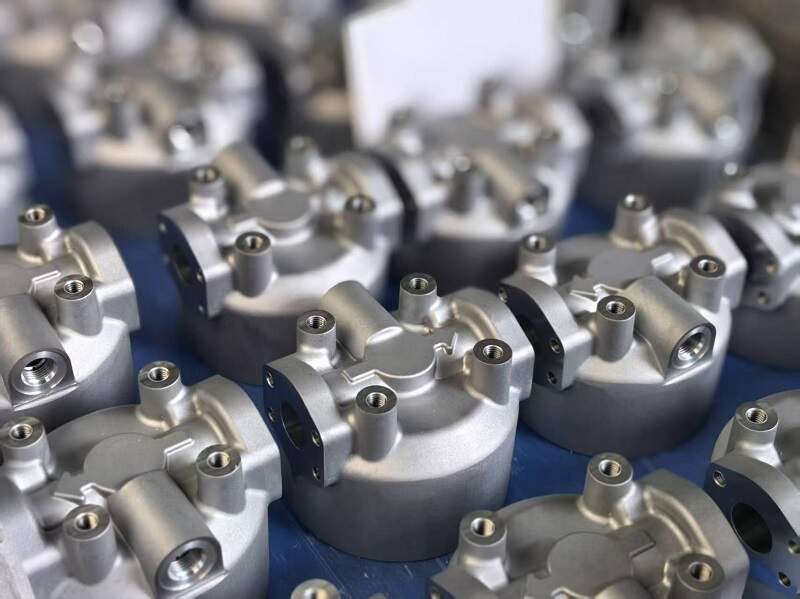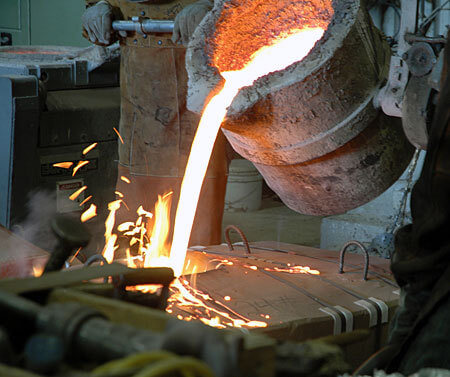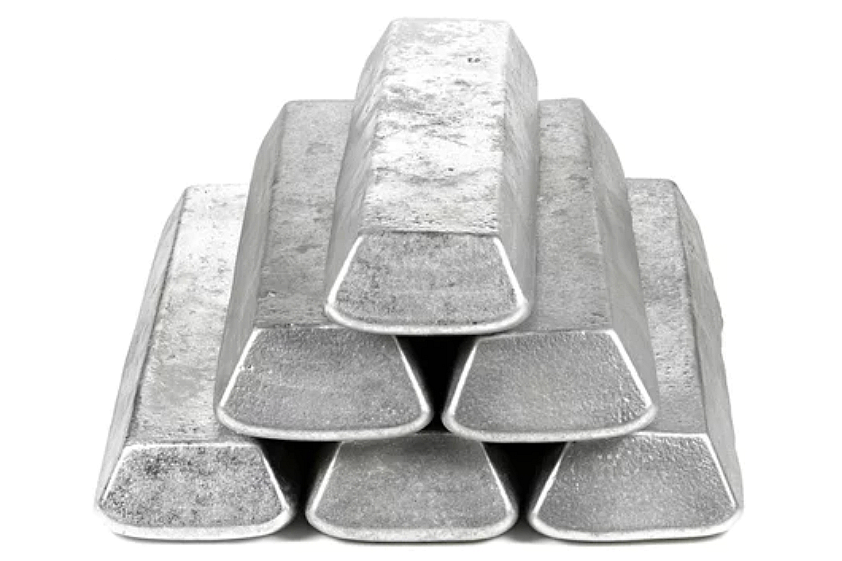The Function of Aluminum Foundries ahead of time Lightweight Manufacturing Solutions
Light weight aluminum factories considerably add to the evolution of lightweight production services. Their cutting-edge casting technologies generate high-strength, lightweight elements vital for industries like auto and aerospace. This advancement not only boosts product performance however likewise promotes sustainability through using recycled products. As these shops adapt to arising technologies and methods, they lead the way for future developments in producing performance and environmental responsibility. What exists in advance in this transformative trip?
The Advantages of Lightweight Materials in Manufacturing
As markets significantly seek efficiency and sustainability, the fostering of light-weight materials in manufacturing has actually become a crucial strategy - Precision aluminum casting. These materials, specifically aluminum and compounds, use many benefits that improve production processes and item efficiency. Largely, their lowered weight adds to decrease power usage throughout transportation and operation, causing considerable cost financial savings
Furthermore, lightweight materials help with the style of more complex geometries, enabling better technology in item development. This adaptability frequently results in improved functionality and efficiency, satisfying the evolving needs of contemporary customers.
Furthermore, using light-weight products can enhance the long life of products as a result of their resistance to rust and fatigue. This longevity not just lowers maintenance prices however also sustains sustainability initiatives, as longer-lasting items contribute to less waste. To sum up, the benefits of light-weight materials are pivotal in driving performance, advancement, and environmental duty in manufacturing.
Innovations in Light Weight Aluminum Spreading Technologies
Recent innovations in light weight aluminum spreading innovations are reinventing the manufacturing landscape, specifically in the production of light-weight elements. Developments such as high-pressure die spreading and vacuum cleaner die spreading have greatly boosted the accuracy and surface area finish of light weight aluminum components - aluminum casting. These methods permit the production of complex geometries while lessening product waste and enhancing mechanical residential or commercial properties

Furthermore, the application of real-time tracking systems assures quality assurance throughout the casting procedure, resulting in more constant product end results. Collectively, these technologies not just enhance the efficiency of light weight aluminum elements yet likewise support the sector's shift towards even more lasting manufacturing methods.
Applications of Aluminum Components in Numerous Industries
While aluminum elements have long been made use of in different sectors, their versatility and light-weight properties proceed to drive innovative applications throughout markets such as automotive, aerospace, and building and construction. In the vehicle sector, light weight aluminum is progressively made use of for engine blocks, wheels, and body panels, boosting gas effectiveness and performance. Aerospace suppliers take advantage of light weight aluminum for aircraft structures and parts, profiting from its strength-to-weight proportion to enhance gas economic climate and haul capacity.
In the building field, aluminum is favored for window frameworks, roof covering, and structural aspects, providing longevity and resistance to corrosion while minimizing total building weight. Furthermore, the electric and electronics markets take advantage of aluminum's conductivity and lightweight nature, utilizing it in wiring, units, and warmth sinks. These diverse applications highlight the essential function of aluminum components, which not just meet industry needs yet also add to developments in product layout and performance across multiple areas.
Sustainability and Energy Performance in Aluminum Foundries
The aluminum shop market plays a vital duty in advertising sustainability and power performance, especially as demand for lightweight Aluminum Casting Company components remains to grow across different markets. Factories are progressively embracing eco-friendly methods, such as utilizing recycled light weight aluminum, which greatly reduces energy intake and greenhouse gas emissions contrasted to key light weight aluminum production.
Developments in casting technologies boost power efficiency by optimizing the melting procedures and lowering waste. Strategies like die casting and investment spreading permit precise product usage, minimizing excess and scrap.
In addition, lots of foundries are purchasing renewable resource resources to power operations, better reducing their carbon footprint. Implementing power administration systems enables shops to enhance and keep track of power usage, ensuring they run at peak effectiveness.

Future Patterns in Lightweight Production Solutions
Just how will emerging innovations form the future of light-weight production services? Technologies such as advanced materials, automation, and additive manufacturing are readied to redefine manufacturing procedures. The integration of smart production technologies, including the Web of Things (IoT) and expert system (AI), will allow real-time surveillance and optimization, enhancing efficiency and minimizing waste.

As sustainability remains to be a critical concern, lightweight options will significantly concentrate on recycling and recycling materials, straightening with circular economic situation concepts. This advancement in lightweight manufacturing will certainly not just boost item efficiency but additionally add to ecological goals, guaranteeing that the industry continues to be competitive in a swiftly transforming market landscape.
Often Asked Concerns
How Do Light Weight Aluminum Foundries Ensure Quality Control in Production?
Light weight aluminum shops guarantee quality control in manufacturing with rigorous screening, standardized treatments, and continuous monitoring - aluminum casting. They execute sophisticated modern technologies and proficient employees to preserve consistency, minimize issues, and meet industry standards throughout the production procedure
What Are the Main Challenges Encountered by Light Weight Aluminum Foundries?
Aluminum factories face challenges such as changing raw product expenses, keeping manufacturing effectiveness, making certain consistent high quality, adjusting to technological innovations, and conference ecological policies, every one of which influence their total functional efficiency and competitiveness on the market.
Just How Does Aluminum Recycling Influence Foundry Workflow?
Light weight aluminum recycling substantially enhances shop operations by lowering raw material expenses, reducing power usage, and lowering ecological impact. This sustainable technique enables factories to improve performance while fulfilling boosting demand for lightweight, high-performance aluminum items.
What Abilities Are Required for Employees in Light Weight Aluminum Foundries?
Workers in aluminum shops call for abilities in metallurgy, machining, quality assurance, and security practices. Proficiency in operating equipment, recognizing alloy residential properties, and analytic are likewise vital for effective production and preserving high safety standards.
Just How Do Aluminum Foundries Deal With Waste Administration?
Aluminum factories handle waste via reusing scrap steel, utilizing effective waste partition methods, and adhering to ecological guidelines. They apply sustainable techniques to decrease garbage dump payments, making certain that harmful materials are disposed of properly.
Light weight aluminum factories substantially add to the development of lightweight production solutions. Recent advancements in light weight aluminum spreading technologies are reinventing the manufacturing landscape, especially in the manufacturing of lightweight components. While light weight aluminum components have long been utilized in different markets, their adaptability and lightweight residential or commercial properties continue to drive cutting-edge applications across sectors such as auto, aerospace, and building. Additionally, the electrical and electronic devices industries benefit from aluminum's conductivity and lightweight nature, using it in electrical wiring, units, and warmth sinks. The light weight aluminum foundry industry plays a crucial function in advertising sustainability and power efficiency, particularly as demand for lightweight components proceeds to expand across numerous fields.